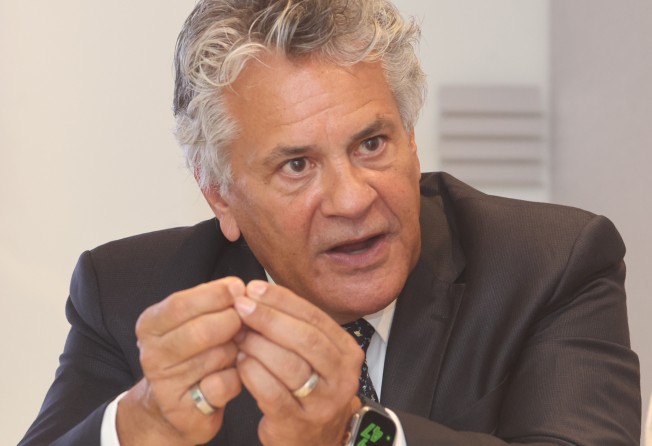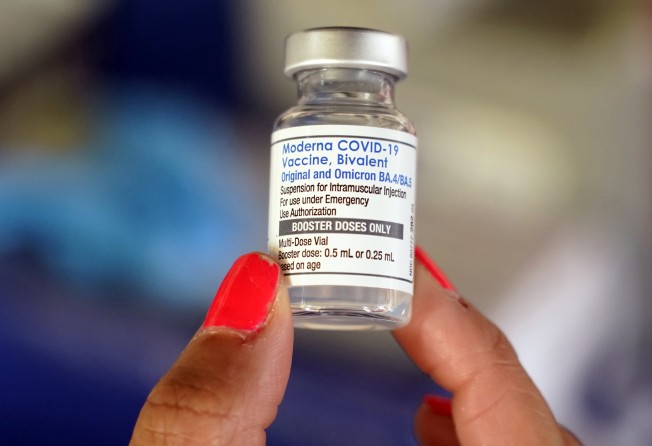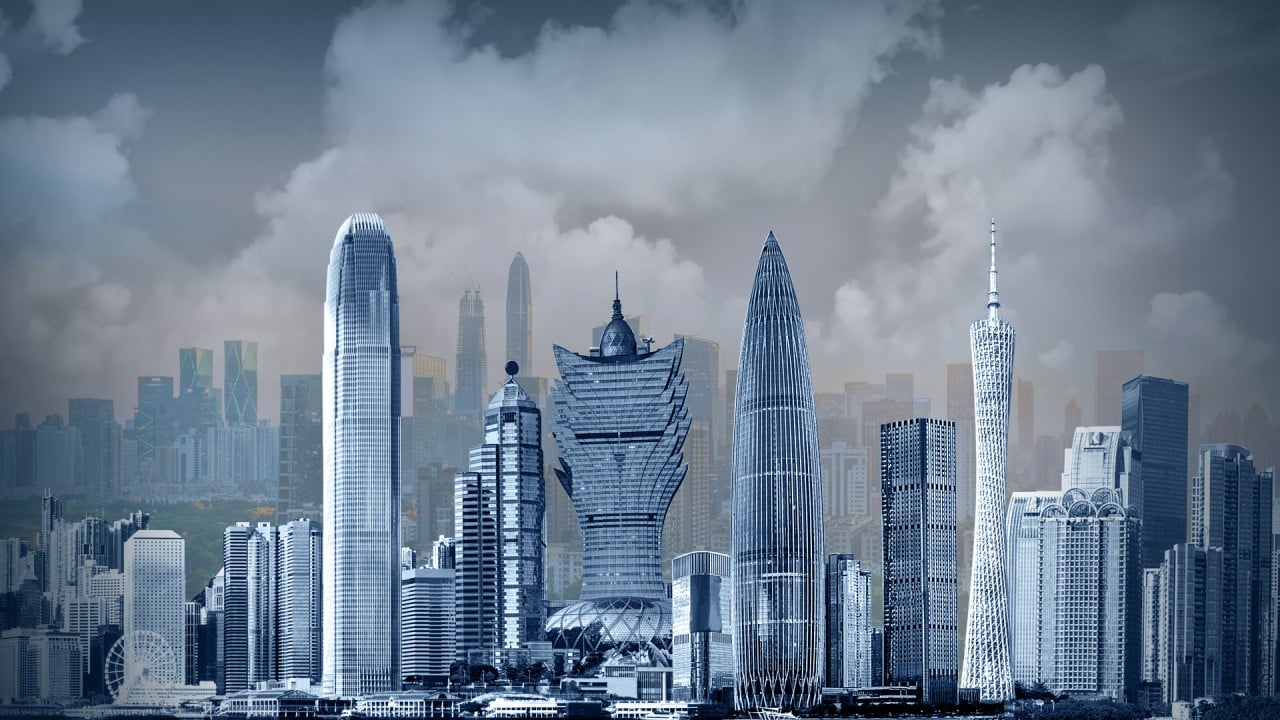
‘Bigger than just Covid vaccines’: US drug giant Moderna wants to collaborate with Hong Kong scientists on mRNA technology with local branch
- Patrick Bergstedt, Moderna senior vice-president and head of emerging markets, says city subsidiary will focus on engaging local stakeholders, with eventual goal to tap into Greater Bay Area
- He hails Hong Kong’s established network, excellent healthcare system and academic circles as pull factors for company

US pharmaceutical giant Moderna is looking to collaborate with Hong Kong scientists on vaccine development after setting up a local manufacturing branch, with a long-term goal to tap into the mainland Chinese market.
In an interview with the Post, Patrick Bergstedt, Moderna senior vice-president and head of emerging markets, said the Hong Kong subsidiary would focus on introducing the mRNA technology to the city, with plans to engage local professionals and other stakeholders.
“The most immediate opportunity is for us to do clinical research in Hong Kong … Because Hong Kong already has a very established network, excellent healthcare system, excellent academic system, excellent hospitals,” he said.

“In the short term, we want to look at how we can do clinical research for our respiratory vaccines, for latent viruses or some of our Moderna therapeutics.”
Unlike other vaccines that introduce a weakened or inactivated virus into the bodies, mRNA or messenger RNA jabs use a molecule that teaches human cells how to make a protein, which triggers an immune response in the body by producing antibodies.
Moderna also has Covid-19 vaccines but these are as yet not available for Hongkongers.
Bergstedt said he expected to introduce up to 48 clinical development initiatives in Hong Kong, as well as a programme called mRNA access that allowed local scientists to make use of the technology and develop vaccines for existing diseases.
The company’s interest in Hong Kong comes on the back of Beijing’s support for the city to become a biotech hub in the Greater Bay Area. The local administration has also pledged to develop Hong Kong into a world-leading fundraising hub for biotechnologies.
Founded in 2010, Moderna is one of the leading biotechnology companies pioneering the mRNA technology to produce vaccines and medicine.
Moderna’s mRNA jab was among the earliest approved vaccines against Covid-19, other than the one manufactured by Pfizer and BioNTech.
Hong Kong is one of four latest jurisdictions in Asia where Moderna has set up shop, with the others being Malaysia, Taiwan and Singapore.
In June, the Post reported that the company was seeking approval from the Hong Kong government to introduce its Omicron-targeted Covid-19 vaccine.
My goal is to establish the right scientific network between Hong Kong and Moderna
Although talks are still ongoing, Bergstedt said the company’s vision for Hong Kong was “bigger than just Covid-19 vaccines”. He said they were looking to collaborate with the government on providing vaccines against other viruses such as influenza and the respiratory syncytial virus (RSV).
“How do we ensure that we provide health security for the people of Hong Kong? This could be in the form of a stockpile of vaccine or some kind of long-term agreement,” he said.
“My goal is to establish the right scientific network between Hong Kong and Moderna, so we can bring our clinical development for those vaccines to Hong Kong as quickly as possible, that will prevent disease and save lives.”
He added that with Hong Kong’s advantage in digital platforms and technology, another area of collaboration could be data-sharing among researchers around the world to monitor the evolution of viruses.
Moderna Hong Kong general manager Sian Ng said while they had yet to map out the exact projects to be rolled out in Hong Kong, their first steps would be to raise awareness of the mRNA technology, recruit local talent and engage with stakeholders such as the authorities, scientists and universities.
She said Moderna was drawn to Hong Kong’s strong healthcare system, outstanding scientific leaders, thriving biotech environment, top-notch infrastructure, favourable economy and robust protection for intellectual property.
“During the recent policy address, we can see that the government is very committed to further establishing and developing [research and development], clinical trials, biotech technology, and we are seeing this very strong signal,” she said.
Bergstedt said Hong Kong’s geographical advantages were also what attracted the company. “Sometimes a [region] may have a very large population with a very large geographic area, but that adds huge complexity to execute a clinical study.
“With Hong Kong being quite concentrated [in terms of] geographic space, but with very, very targeted [academia] and very respected academic centres, which has networks with the United States, that makes it easier.”
Bergstedt said after the Hong Kong branch was up and running, the firm might venture into the Greater Bay Area, an ambitious plan by Beijing to integrate Hong Kong, Macau and nine mainland cities in the south into an economic powerhouse. Including Hong Kong, the area has a population of more than 86 million.
“Having Hong Kong play a role, a gateway or provide a pathway to serve so many, many more people, that’s Moderna’s mission,” he said.
“Our mission is to expand the access of mRNA science to improve the quality of lives of people around the world.”
